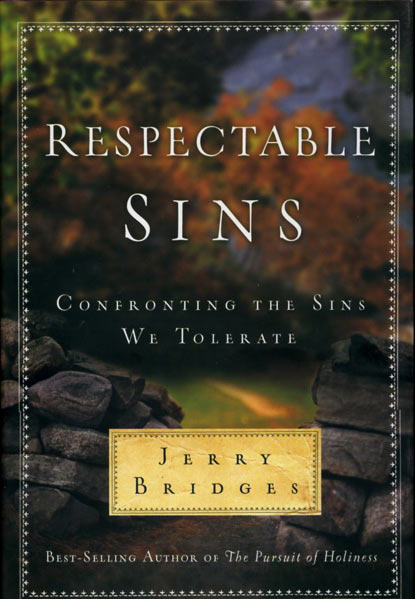Quotes
[S]ad to say, the concept of sin among many conservative Christians has been redefined to cover only the obviously gross sins of our society. The result, then, is that for many morally upright believers, the awareness of personal sin has effectively disappeared from their consciences. But it has not disappeared from the sight of God. Rather, all sin, both the so-called respectable sins of the saints, which we too often tolerate, and the flagrant sins of society, which we are quick to condemn, are a disregard for the law of God, and are reprehensible in His sight. Both deserve the curse of God.—pg 22
Forgiveness, however, does not mean overlooking or tolerating our sin. God never does that. Instead, God always judges sin. But in our case (that is in the case of all who trust in Jesus as their Savior), God has judged our sin in the person of His Son.—pg 28
…Christ, in His work for us and in us, saves us not only from the penalty of sin but also from its dominion or reigning power in our lives.—pg 33
God does not forgive because He wants to be lenient with us. He forgives because His justice has been satisfied. The absolute forgiveness of our sins is just as as rock solid as the historic reality of Christ’s death. It is important that we grasp this wonderful truth of the gospel because we can face our “respectable” sins only when we know they are forgiven.—pg 39
Summary
In the first six chapters of the book, Bridges lays a foundation for all that follows. He begins with the positive calling that every believer has received to live as a citizen of heaven—a saint—even in the midst of a fallen world. Yet the sad reality is that many believers today have joined the society at large in ignoring how pervasive and pernicious the problem of sin really is. If we do not understand and acknowledge that all sin, no matter how “respectable” is worthy of God’s judgment, we will never seek to destroy it as God intends. Of course the war against sin, as Bridges hastens to point out, will never be won in our own strength. The life of the Spirit can only be lived by the power of that same Spirit. Yet what we need to constantly remind ourselves of is that power never accessed might as well be unavailable. We have been given everything that we need to make daily progress in sanctification—but we must make daily use of what we have been given if we are to make that progress.
Coming Up
In the next chapter, Bridges shines the spotlight on the heart ungodliness that lies at the root of each of the “respectable” sins that follow.



